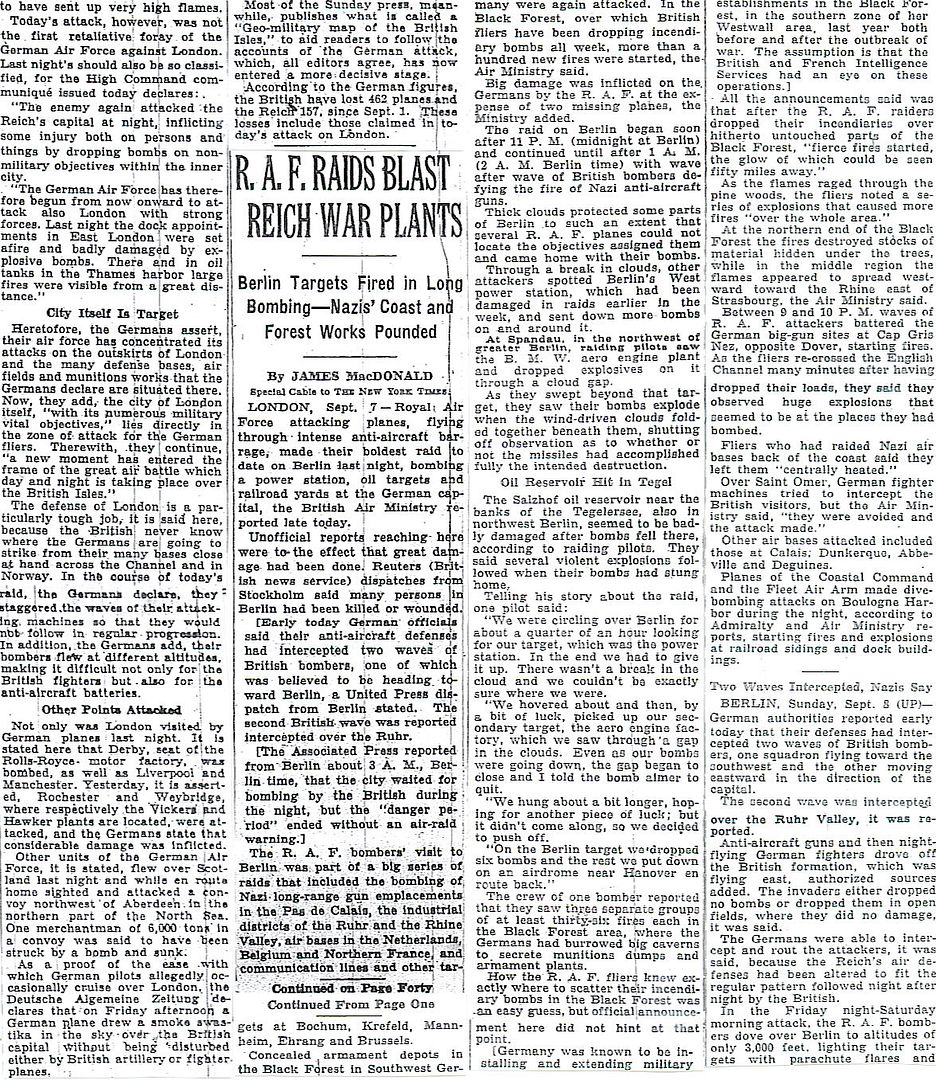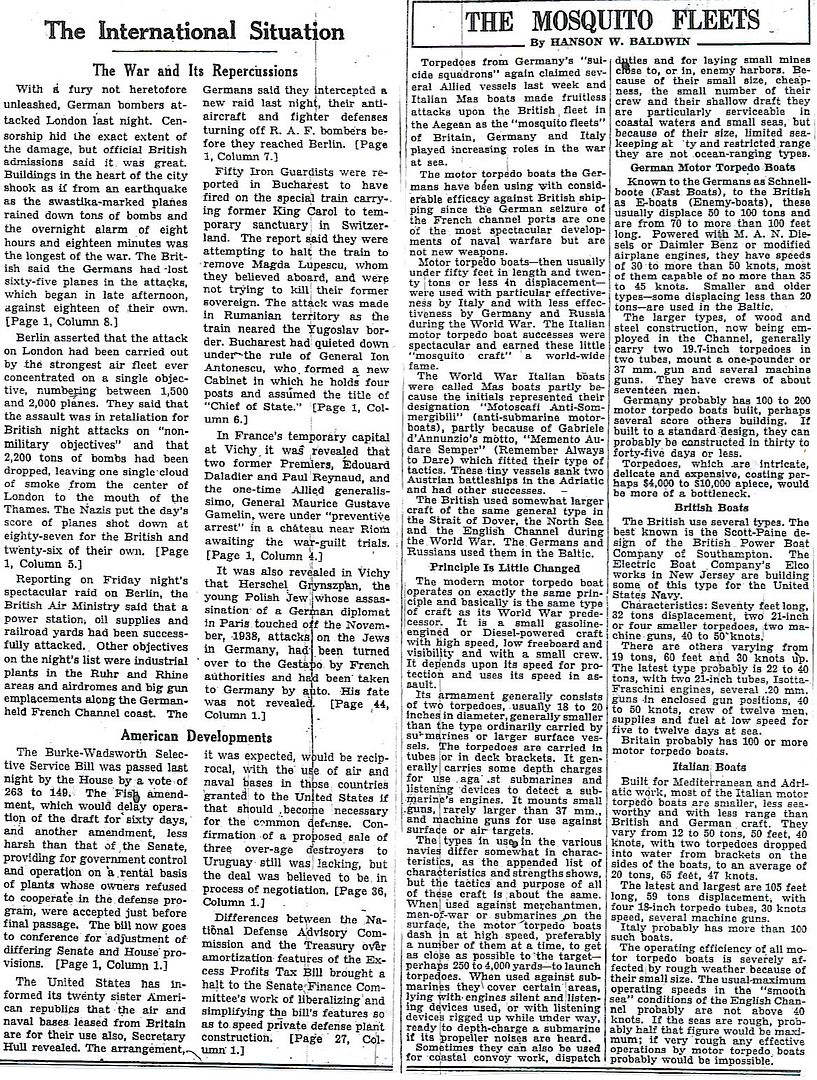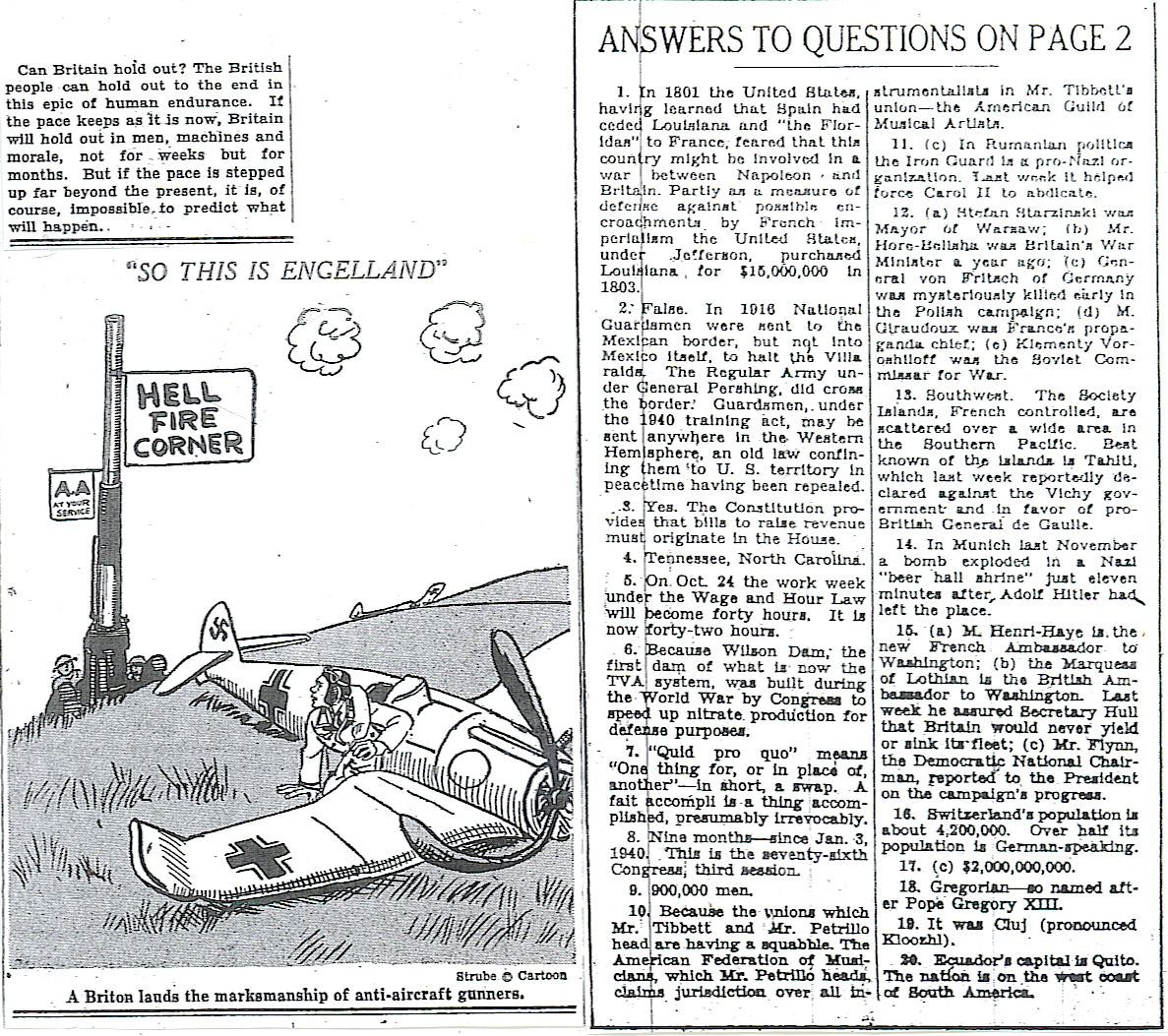
Posted on 09/08/2010 5:01:11 AM PDT by Homer_J_Simpson













I read an article once (I can probably dig it up if you wish, it may be of some interest) which stated that it all has to do with the distance from an active railhead. Once away from the railhead, limited trucking capacity and round-trip times really take the legs out of an offensive. Having more trucks can extend the logistical limits somewhat, as the Soviets found in Operation Bagration and the Americans tried after the Normandy breakout, but in the end it all comes back to railroads. The massive amount of stuff required by a modern mobile army can only be effectively supplied by railroads. Ironic, isn’t it? A 20th century internal-combustion engine driven army, tied to a 19th century transportation infrastructure.
But anyway, the Germans also had to know that they couldn’t just “take over” the Soviet railways like they did the French and Belgian. The Germans launched their final assault on France very soon after the fall of Dunkirk. It was only a matter of days. They were able to regroup and resupply their armies in Flanders very quickly because they had captured the northern French and Belgian rail net more or less intact. Trains could travel straight from the Rhine to the Somme and drop their loads almost at the front lines.
Not so in the USSR: every mile further into the Soviet Union meant one more mile of railroad track that required conversion from broad gauge to international gauge.
I would have thought the Germans would have realized all these hurdles they would have to overcome. That line Marcks drew as a final stopping point was way too far. Moscow was way too far. Really, they had no business trying to go much farther than Smolensk before the November mud season. And some (Stahel and Glantz) would argue that Smolensk was too far.
But I’m getting way ahead of myself on a total digression from our subject of the day, but one which I will warm up to quite readily.
PS:
Even against a collapsed enemy, the logistic limit applies. In fact, it is the lack of opposition that proves the existence of the limit. Look at July-August 1944 in the east and August-September 1944 in the West.
For scale comparison, the September 7 raid on London saw 2,200 tons of bombs dropped by the Germans.
In June 1944, the Americans dropped 120,000 tons of bombs on Germany.
Rail transport has played a critical roll in supplying armies from the moment they were invented. I’m going back a bit, but remember Sherman as he tore through the South actually solved his “wagon” problem by building a railroad behind his advance for his major logistical support. Then it was just a matter of securing a smaller number of wagons and drafts to run the supply on the shorter logistical line.
This different gauge rail issue in Russia I’m finding was a significant issue and it makes sense why that is. Since we know that the German logistical support was not motorized to a significant degree, then there is a logistical issue for the Germans that is actually similar to that which Sherman faced eighty years previously. When you have a 250 mile range you can advance quickly with a mobile unit before you have to resupply (I wish I can remember where I read that, I think it was in this Army Historical Series I have on logistics but I cant find it in there now) then this can cause a significant problem.
With the U.S. breakout in France the logistical issues were such that they created a one-way highway to try and keep the U.S. 3rd Army supplied (The Red Ball Express). The supply issues combined with some really well fortified positions in the Loraine region ground the 3rd to a halt and left Patton to say (I’ll paraphrase): “After we win this war I hope they give the enemy the Loraine area. I can think of no better punishment than to make them administer this God forsaken country”.
To look at it another way, Fat Man that was dropped on Nagasaki was the equivalent of 10 times more explosives than that which the Germans dropped on September 7th.
No doubt, having sewed the wind, Germany reaped the whirlwind.
Allied bombers dropped many times the tonnage on Germany that Germans had dropped on the allies.
But like the allies, Germans employed incendiaries from the beginning, resulting in fires which killed more than the bombs themselves.
And in the end, including Eastern European and Soviet civilians, as many allied civilians died from German bombings as German civilians died from allied bombings -- about half a million of each.
Plus overall, in Germany's war of conquest at least four allied citizens were killed for every German who died.
So it seems to me, all things considered, the Germans got off easy.
Bizarre numbers. Please double-check your sources.
Yep, this is where the war was lost, dumb move by the Germans.
If the railroad was the key, then wasn't the logistical problem in Russia solved at the speed that rail lines could be converted to the narrower European gage?
Or, alternatively, the speed at which cargoes could be transferred from narrow gage German rail-cars to the wider Russian cars?
And were there not rail lines crisscrossing all of western Russia?
Indeed, I've long wondered if the rail line connecting Stalingrad to the west might help explain Hitler's obsession with fighting the battle there, and nowhere else.
Wouldn't supplies for Stalingrad go straight to it by rail, then directly into the battle, very little truck transportation needed?
Point is, if Hitler's logistical planners assumed the Russian railroads would be available, that might explain their overly optimistic expectations.
They can all be easily referenced.
So, which numbers do you find "bizarre"?
Your claim that the allies lost 4 civilians to every german killed is bizarre.
The U.S. lost only 1,700 civilians in WW2. Germany lost over 3 million.
You’d have to count the Soviet Union’s 12 million civilians killed to arrive at your claim for allied losses, and the CCCP was hardly an ally...no treaties with the U.S. or UK...and a combat alliance with Germany until Operation Barbarossa.
http://en.wikipedia.org/wiki/World_War_II_casualties
I don’t think anyone got off easy in all honesty. Did you see the youtube link in yesterday’s post? The news lady was handling one of those German incendiaries. The look very different from the ones that we dropped on Tokyo.
That's a tough question. It's also one that will likely have some degree of answer in my own research here, but it's still early in that endeavor. Overall though I would say that one of the German's commanders primary failings was on the logistical front. Not even so much as what was available, but how they used it.
Guderian had cans of fuel strapped to his panzers as he executed the Sickle Cut since he had no expectation of a dependable supply line. Rommel, for all his brilliance, did not pay adequate attention to the logistical needs of the Afrika Corp which would in the long run have a major effect in the overall fight in North Africa. Initially, at any rate I do not see them addressing it much better on the eastern front, but we will see.
You would have to count the Soviets though. After 1941 the Allies “Big Three” consisted of Roosevelt, Churchill, and Stalin. It was an uneasy alliance and perhaps not a former one at that, but it was one nonetheless. This is not much different from the Atlantic Charter which we will learn about next year. That Charter was agreed to by the British and Americans, but it was never signed and never brought before Congress either if I remember right.
So if you throw the Soviet citizens in there then it probably does equate that way. It is just a statistic though and doesn’t really tell the whole story. For example, how many civilians died in Stalingrad since Stalin ordered that the civilians were not to evacuate the city and face the Germans just as the soldiers were? How many starved because of the scorched earth policy as the Soviets withdrew? You get the point.
It’s like they say, there are lies, damn lies, and statistics. I’m not immune from using them from time to time myself (see my idle musing on the real status of the R.A.F. a couple of days ago). It’s all a matter of perspective I guess. The example I usually give is that if someone points out that 50% of marriages end in divorce (sounds bad) then it means the 50% end in death (sounds worse).
Counting Soviet civilian deaths is entirely bizarre for a thread about the Battle of Britain!
Counting the Soviet civilian deaths gives ZERO indication of British versus Nazi bombing effectiveness, relative strengths, who was winning/losing, etc.
It just muddles the whole thing.
Compare British civilian deaths to German civilian deaths prior to Soviet troops entering Germany for a much more accurate and realistic picture, please.
Considering that I was not making this comparison, I would say your angst is misplaced. Like I said, on a whole its a statistical exercise which no matter what the context is, does not really capture the whole story.
Comparing German civilian deaths with British prior to 1941 would be equally as fruitless. For one, it is nearly impossible to validate the numbers and even if you could, it still does not tell anyone anything about the circumstances surrounding those numbers. That’s why I’m saying that statistics are interesting, but not necessarily useful.
Oh brother...
Throughout the war different bombing campaigns varied greatly in their purposes and effectiveness. To cite a few examples:
As for our Soviet allies -- from the perspective of military effort and casualties, the Second World War was all about Hitler versus Stalin, with Churchill and Roosevelt playing important but relatively minor supporting roles.
At least 75% of the war was won and lost on the Eastern Front.
So Roosevelt's major accomplishment was to encourage Stalin to stay in the fight and not make a separate peace with Hitler -- which Stalin was very inclined to do.
But Stalin wanted a second front invasion of France -- not in 1944 as it happened, but in 1942, when Stalin's situation was more than desperate.
Well, Churchill and Roosevelt could in no way give Stalin his second front in France, in 1942.
What they offered instead were the bombing campaigns over Germany, which they hoped could substitute for the second front and perhaps even win the war without the necessity of western allies invading Europe.
Stalin, of course, knew better, but grudgingly accepted the allies' bombing of Germany as a token of their good faith -- so he refrained from making a separate peace with Hitler.
Point is: the allies' efforts, including Stalin, were closely linked and coordinated -- Soviet victory in the East owed almost as much to Roosevelt's aid and encouragement as it did to Russian courage and Stalin's brutality.
No, of course not.
The war's death toll is typically estimated anywhere from 50 million to over 75 million.
None of those "got off easy."
The German death toll was somewhere around 7 million, about half military and half civilians.
That's less than 10% of Germany's population.
So the Germans certainly did suffer, but others suffered as much, or more.
I know I am a day late on commenting on this Wednesday post, but I enjoyed the “20 Questions” that the paper had.
Good stuff to read to get the mind-thought back then and even get a re-educated for myself.
Disclaimer: Opinions posted on Free Republic are those of the individual posters and do not necessarily represent the opinion of Free Republic or its management. All materials posted herein are protected by copyright law and the exemption for fair use of copyrighted works.